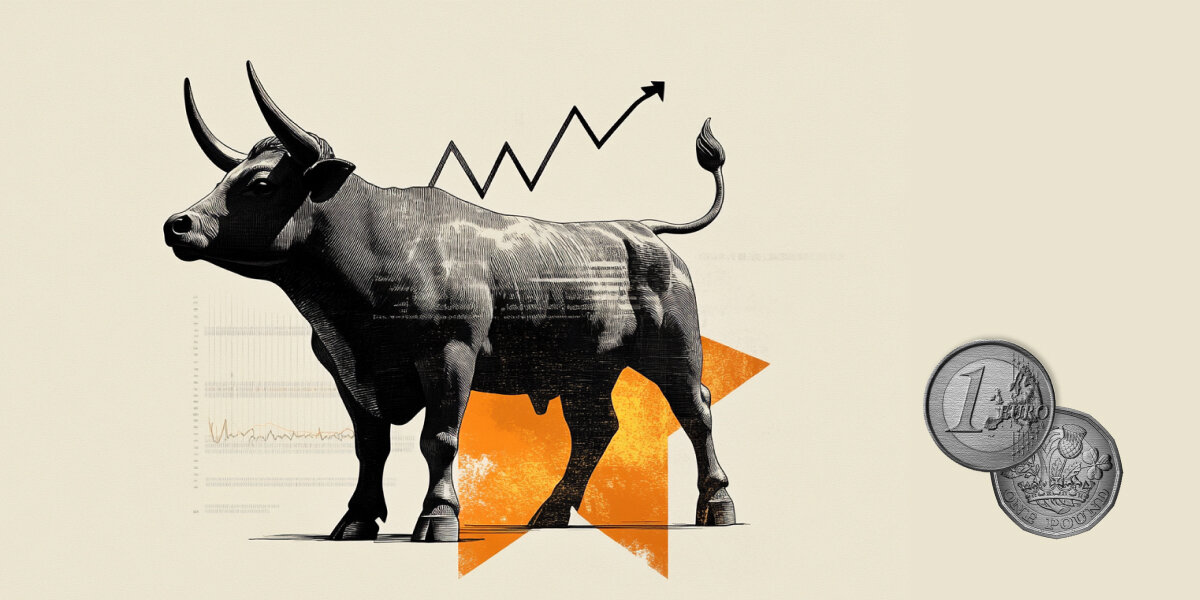Created
: 2025.06.06














![]() 2025.06.06 15:36
2025.06.06 15:36
EUR/GBP extends its gains for the third consecutive day, trading around 0.8430 during the Asian hours on Friday. The currency cross remained stable after the European Central Bank (ECB) delivered a widely expected 25 basis point rate cut on Thursday, and reduced interest rates to 2.0% from 2.25%.
In its accompanying statement, the European Central Bank (ECB) ensured to stabilize inflation at the central bank's 2% medium-term target. The ECB reiterated that a data-dependent and meeting-by-meeting approach will be followed to determine monetary policy stance, especially in current conditions of exceptional uncertainty.
Moreover, ECB President Christine Lagarde said in a post-meeting press conference that monetary policy is "well-positioned," while the current uncertain outlook is more than usual. Lagarde also added that the central bank is close to ending the easing cycle.
Moreover, ECB policymaker Madis Muller noted that he "agrees with President Christine Lagarde that the cycle is almost finished." On Friday, ECB policymaker Martins Kazaks said, "It may well be the case that we pause in July." Kazaks also noted that inflation has been below 2% for some time, but remains vigilant.
The EUR/GBP cross may face challenges as the Pound Sterling (GBP) could receive support from increased risk sentiment. Market sentiment in the United Kingdom (UK) improves as US President Donald Trump signed an executive order on Tuesday, granting temporary relief to UK exporters from the steep 50% US tariffs on steel and aluminum. The UK still faces the previous 25% tariff rate.
Tariffs are customs duties levied on certain merchandise imports or a category of products. Tariffs are designed to help local producers and manufacturers be more competitive in the market by providing a price advantage over similar goods that can be imported. Tariffs are widely used as tools of protectionism, along with trade barriers and import quotas.
Although tariffs and taxes both generate government revenue to fund public goods and services, they have several distinctions. Tariffs are prepaid at the port of entry, while taxes are paid at the time of purchase. Taxes are imposed on individual taxpayers and businesses, while tariffs are paid by importers.
There are two schools of thought among economists regarding the usage of tariffs. While some argue that tariffs are necessary to protect domestic industries and address trade imbalances, others see them as a harmful tool that could potentially drive prices higher over the long term and lead to a damaging trade war by encouraging tit-for-tat tariffs.
During the run-up to the presidential election in November 2024, Donald Trump made it clear that he intends to use tariffs to support the US economy and American producers. In 2024, Mexico, China and Canada accounted for 42% of total US imports. In this period, Mexico stood out as the top exporter with $466.6 billion, according to the US Census Bureau. Hence, Trump wants to focus on these three nations when imposing tariffs. He also plans to use the revenue generated through tariffs to lower personal income taxes.
![]()
Created
: 2025.06.06
![]()
Last updated
: 2025.06.06

FXStreet is a forex information website, delivering market analysis and news articles 24/7.
It features a number of articles contributed by well-known analysts, in addition to the ones by its editorial team.
Founded in 2000 by Francesc Riverola, a Spanish economist, it has grown to become a world-renowned information website.
We hope you find this article useful. Any comments or suggestions will be greatly appreciated.
We are also looking for writers with extensive experience in forex and crypto to join us.
please contact us at [email protected].
Disclaimer:
All information and content provided on this website is provided for informational purposes only and is not intended to solicit any investment. Although all efforts are made in order to ensure that the information is correct, no guarantee is provided for the accuracy of any content on this website. Any decision made shall be the responsibility of the investor and Myforex does not take any responsibility whatsoever regarding the use of any information provided herein.
The content provided on this website belongs to Myforex and, where stated, the relevant licensors. All rights are reserved by Myforex and the relevant licensors, and no content of this website, whether in full or in part, shall be copied or displayed elsewhere without the explicit written permission of the relevant copyright holder. If you wish to use any part of the content provided on this website, please ensure that you contact Myforex.
Myforex uses cookies to improve the convenience and functionality of this website. This website may include cookies not only by us but also by third parties (advertisers, log analysts, etc.) for the purpose of tracking the activities of users. Cookie policy